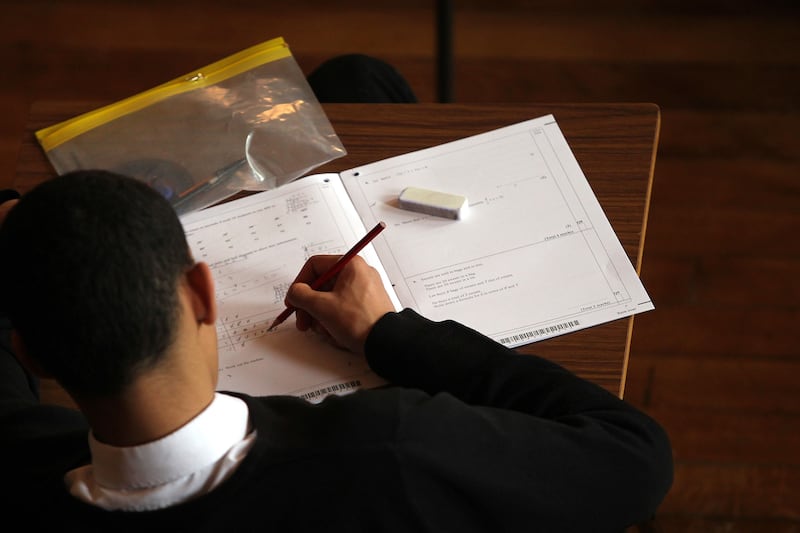PEN and paper exams should be scrapped by 2025 as part of efforts to overhaul the assessment system, a report has suggested.
The study, by the education technology not-for-profit Jisc, said technology offered opportunities to test knowledge and skills "in a more realistic and motivating way than pen and paper tests", which can appear irrelevant outside the academic world.
Jisc's report on "the future of assessment" sets out five principles and targets for colleges and universities to follow over the next five years to help digitise assessment.
These cover the areas of more "authentic" and "accessible" assessment, "appropriately automated" marking and feedback, "continuous" opportunities to review learning through life and "secure" testing free from cheating.
The report argues there is already a "move away from the traditional essay or exam" and instead "assessments are building in authenticity by asking students to develop websites, set up online profiles, shoot and edit videos, and use social media".
It also suggests it is "worth experimenting" with the use of biometric data, such as fingerprints, to help prevent exam cheating.
Andy McGregor, director of edtech at Jisc, said: "If used well as part of good assessment design, then emerging technologies can transform the way students are evaluated so that it is more relevant to their careers, more accessible and more secure, while promoting wellbeing and removing some of the administrative burden on teaching staff."
The report argues that technology can make assessment "smarter, faster, fairer and more effective", but that the pace of change was "too slow".
"The logistical implications of even a move from pen and paper to digital devices are not trivial," it acknowledged.
"It will take time and investment to create an environment where new forms of assessment can be introduced and scaled up."
Among the case studies highlighted in the report where change is taking place is Bolton College's work on natural language processing in assessment.
The college in Greater Manchester is exploring if students can give answers and receive automated feedback based on model answers provided teaching staff.
Elsewhere, Preston College in Lancashire uses a 360-degree camera to review work in the dance studio and Newcastle University is moving towards digital exams.
Further afield, the Jisc report also highlights the use of digital exams for more than five millions students in India.
Between December 2018 and August 2019, the UK's national testing agency assessed 5.5 million candidates for entrance to education establishments, with each using an e-card with their thumbprint and photo to access the examination room.
A photo and thumbprint taken on the day of the exam, which are taken on computers, is attached to the attendance sheet which must also be signed by the student.
In its targets and recommendations, Jisc said there should be a general adoption of biometric authentication to check students' identity and help exams be sat remotely.
"Use of biometric data such as face recognition or fingerprints can make it virtually impossible for one student to impersonate another," the report said.
The report also calls for employers and professional bodies to have more input into assessments, the establishment of a universal design approach to assessment and a better balance between human and automated marking.
Data and analytics should also be used to ensure assessment is effective in the long term.








